Celebrating Daddy Yankee
Posted on March 5, 2024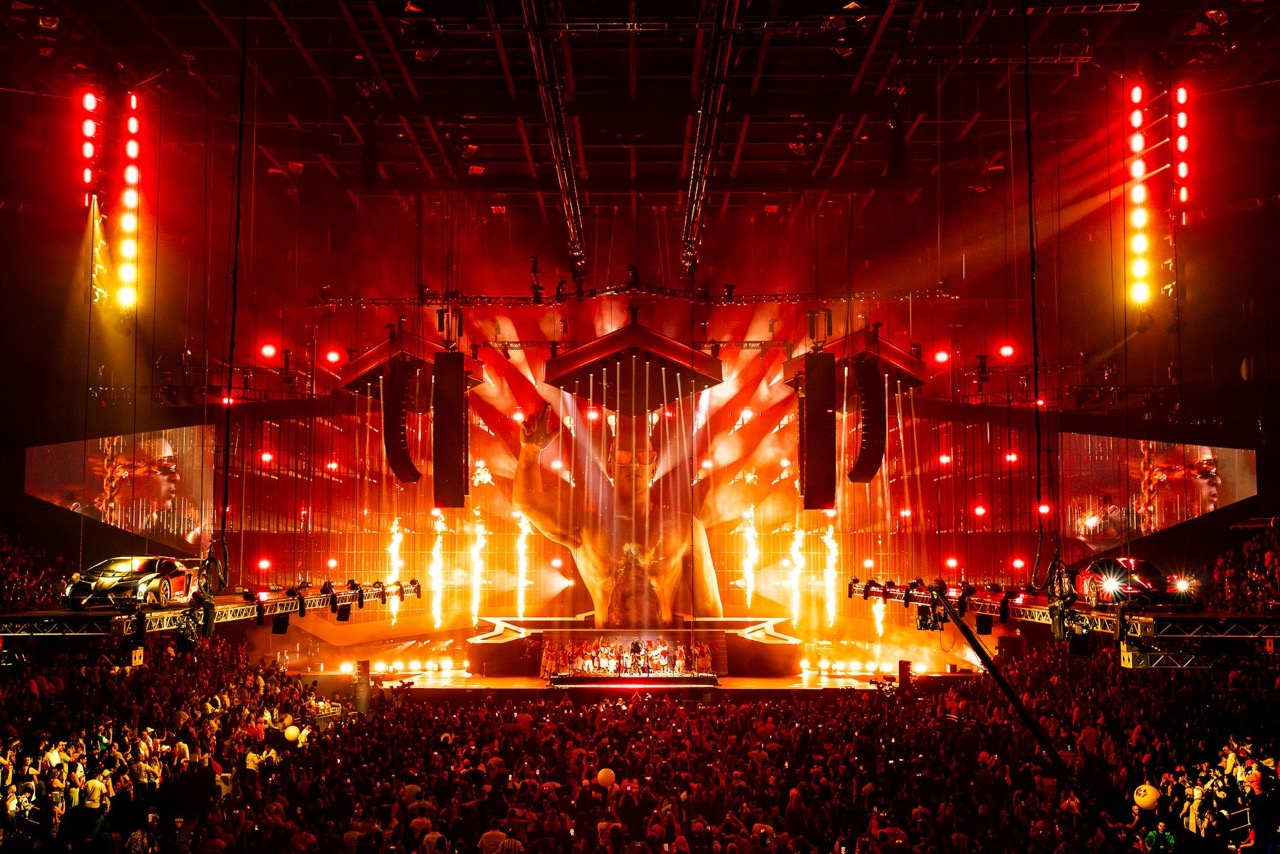
“Every moment of light and dark is a miracle,” wrote Walt Whitman. All lightshows are proof of that. But on rare occasions, when the meaning of the moment aligns perfectly with the aesthetics that celebrate it, the “miracle” becomes frozen in time, ensuring that it will always burn brightly in the minds of all who appreciated it.
The design team at The Playground created at least one such moment this December at “La Meta,” the final five concerts in Daddy Yankee’s career. It occurred in their show’s fourth act when a massive stone bust emerged on the deeply immersive stage at the Coliseo de Puerto Rico. The imagery of this figure, which depicted the reggaeton legend and his trademark geometric goat head logo, declared in stunningly bold and moving terms that this was a historic moment in a historic career.
It was a moment that no one in the packed arena is ever likely to forget, which is precisely what the Playground team of Curtis Adams (show and creative director); Trevor Ahlstrand (production designer); and Sooner Routhier (production designer), aspired to achieve when they collaborated on the show.
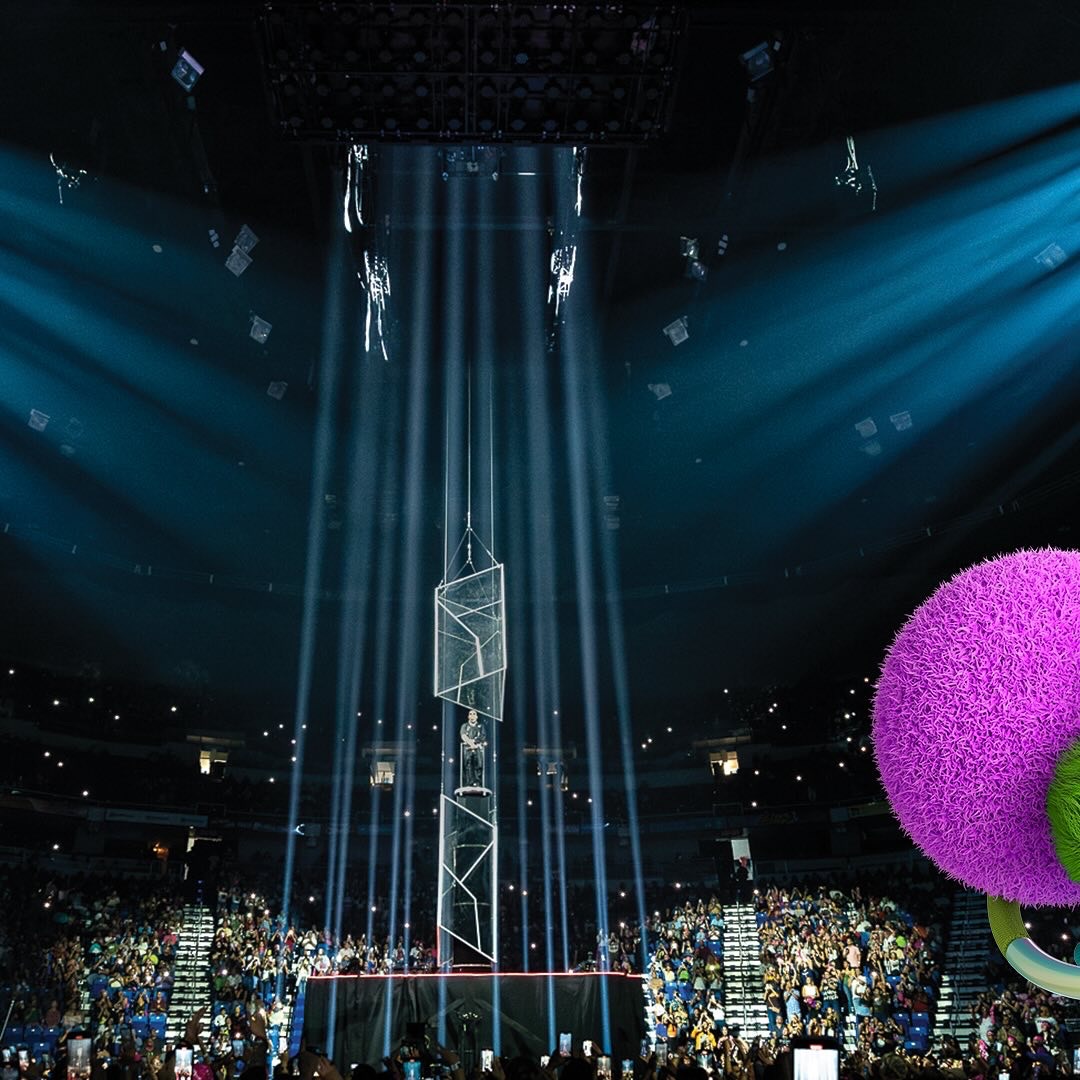
Working with lighting programmers Will Flavin and Dane Kick, and drawing on the power of a 4Wall Entertainment supplied rig that featured over 500 CHAUVET Professional fixtures, the designers captured the essence of one of the music industry’s most influential careers.
“To make the entire design cohesive, we were inspired by the shape of the language within Daddy Yankee’s branding and career, which gave us an incredibly fun playground to dream within,” said Adams. “Daddy Yankee asked us for his biggest show yet, so we were driven to discover ways to engineer the performance space creatively and artistically.”
Added Routhier: “Given that these were the final shows of Daddy Yankee’s career, we were tasked with creating his biggest arena production ever. Our design spanned the entire arena, allowing the audience to feel totally immersed in the show.”
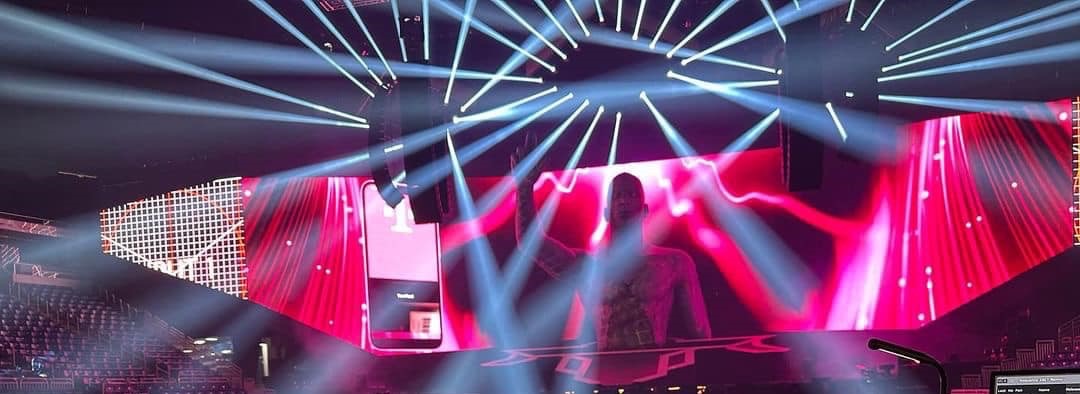
In keeping with their goal, the design team wanted to avoid flat video walls, believing that they would be too limiting. Instead, they focused on creating an environment that drew on all production elements. Wrapping the video screen around the stage allowed them to maximize space, while developing new depth for visuals and the performance. This larger-than-life design was not only captivating in person, it also delivered a stunning experience for the cameras.
Ahlstrand elaborated on how the team created this massive, multi-layered rig. “We viewed the rig as multiple systems or areas of lighting, sometimes each with a few fixture types,” he explained. “We had our B-stage where we started the show with embedded LED as well as hybrids surrounding the stage. Our audience towers contained both strobes and profiles. There were also pods over the stage with more hybrids and linear LED units, as well as floor lights with profiles and strobes for the band and dancers. Finally, our back wall possessed a lot of visual fire power with all of the vertical LED bars, horizontal profiles, and many more strobes.”
The visual power of the large, deeply textured rig, which had an upstage video wall trimmed at 57-feet from the arena floor, came into full play at the magical moment when the Daddy Yankee bust appeared.
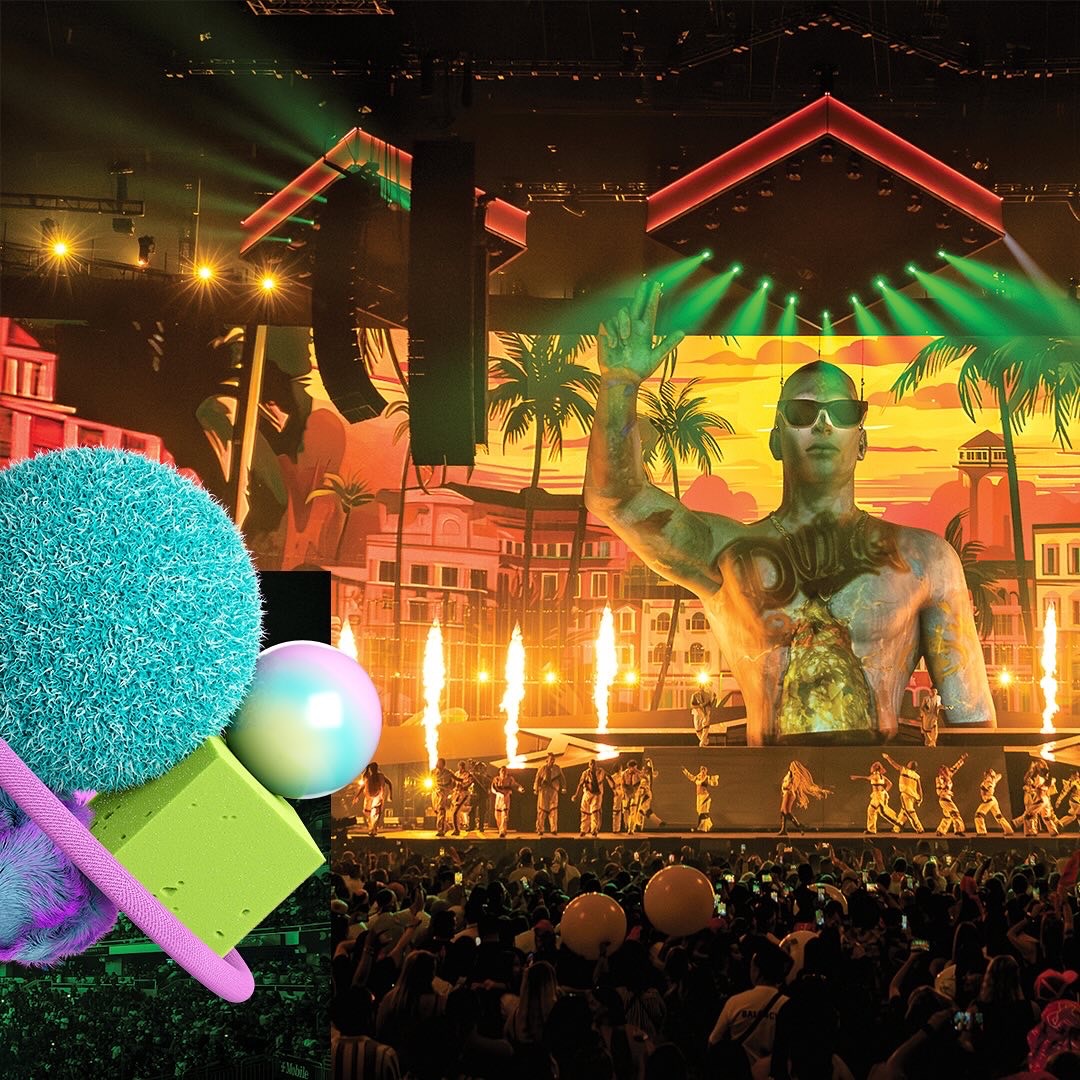
Elaborating on this moment in the show, Adams noted: “La Meta is a celebration of Daddy Yankee’s career, chronologically highlighting each of his eras, and the evolution of Reggaeton. In our fourth act, we cement his status as the G.O.A.T. with a massive stone bust of him coming out of the stage.
“This was engineered by Matthew Whitehead and his talented team at AirWorks,” continued Adams. “We wanted to create an iconic moment frozen in time, so we were inspired by one of DY’s trademark poses. To emphasize the statue’s regality, the inflatable statue featured cracks of Golden Kensuzi, and a hollow golden chest cavity with a throne made of dancers. The giant scenic element begins at the fourth act, and remains the centerpiece for the remainder of the show, as it comes back to life crying golden tears, continuously evolving, and transforming with the help of the wizards at F9.”
Making a key contribution to the entire show were the rig’s 192 Color STRIKE M fixtures, some of which were used as side lights and on an upstage row for dance light, as well as for slow motion effects. Other units of the motorized strobe-wash were positioned behind the video screen, while the remainder lined two sides of each audience tower to provide crowd lighting as well as visual sweeps.
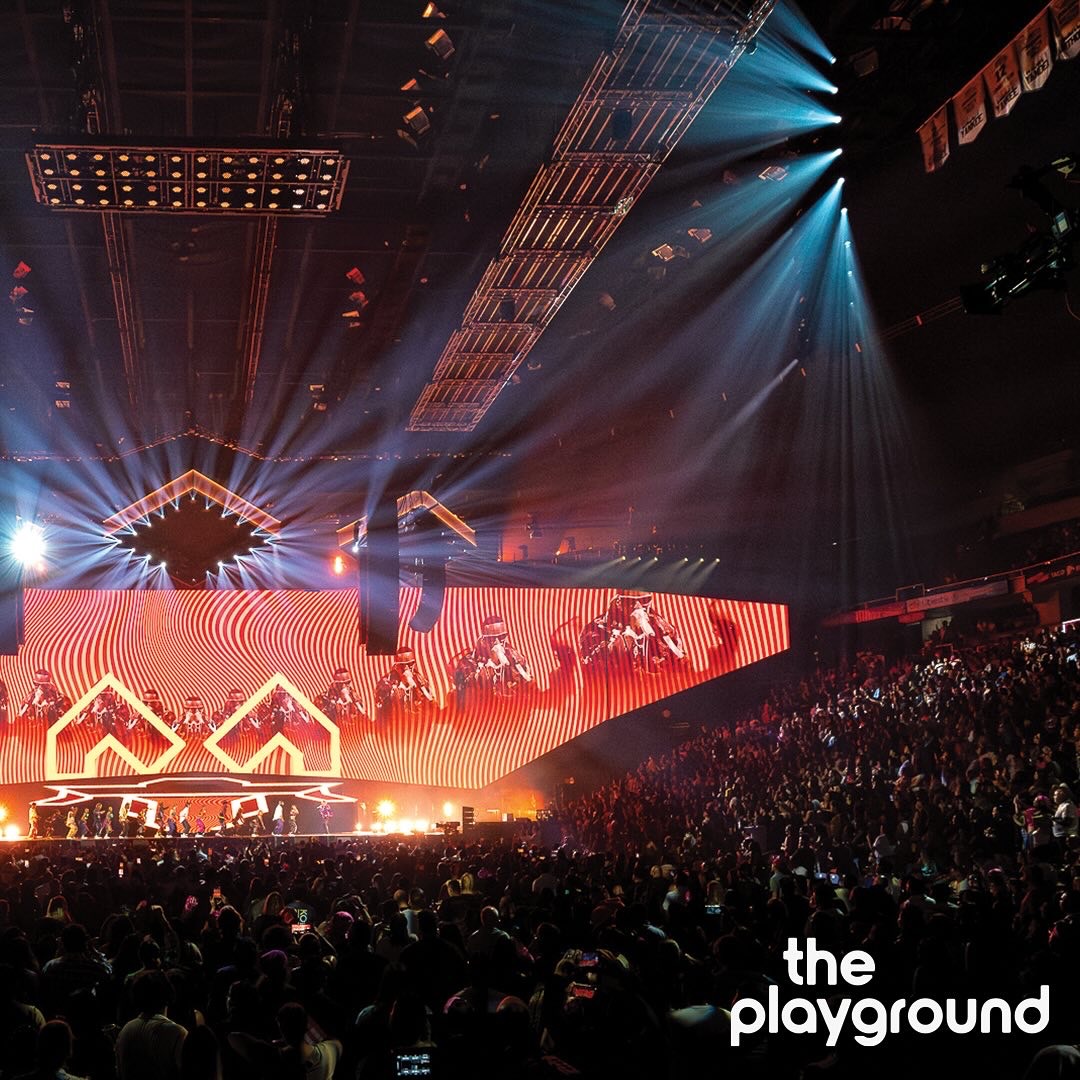
Adding to the rig’s firepower were 313 COLORado PXL Bar 16 fixtures. “We used them as vertical towers to shine through the screen going as tall and as wide as we possibly could in the venue,” Ahlstrand said of the motorized battens. “This gave us a huge matrix of pixels to visually accent the music both vertically and horizontally throughout the show. Will and Dane both were able to create very dynamic and unique effects without the looks ever feeling repetitive.”
Rounding out the CHAUVET Professional fixtures in the rig were 12 Maverick Storm 4 Profiles. Placed on the deck, these fixtures created floor effects.
Given the depth and power of the rig, and imagination of the design team, there were plenty of memorable looks in La Meta. “The show is full of first, never-before-seen moments, including a fully-surrounded reveal of Daddy Yankee in mid-air at the back of the house, creating this incredible club-like energy to start the show,” said Adams. “A few additional favorite moments were when Daddy Yankee’s giant bust would cry golden tears, turning the statue to gold, and the unbelievable ‘Gasolina,’ drag race over the audience’s heads.”
Routhier was also captivated by Gasolina. “I love the enormity of it,” she said. “This was the final song of the set, and it encompassed the entire arena. It was almost overwhelming to take in the flames, 25 dancers, lighting, content, DY floating above the audience on a lighting pod, and a drag race between a Ferrari and a Lamborghini.”
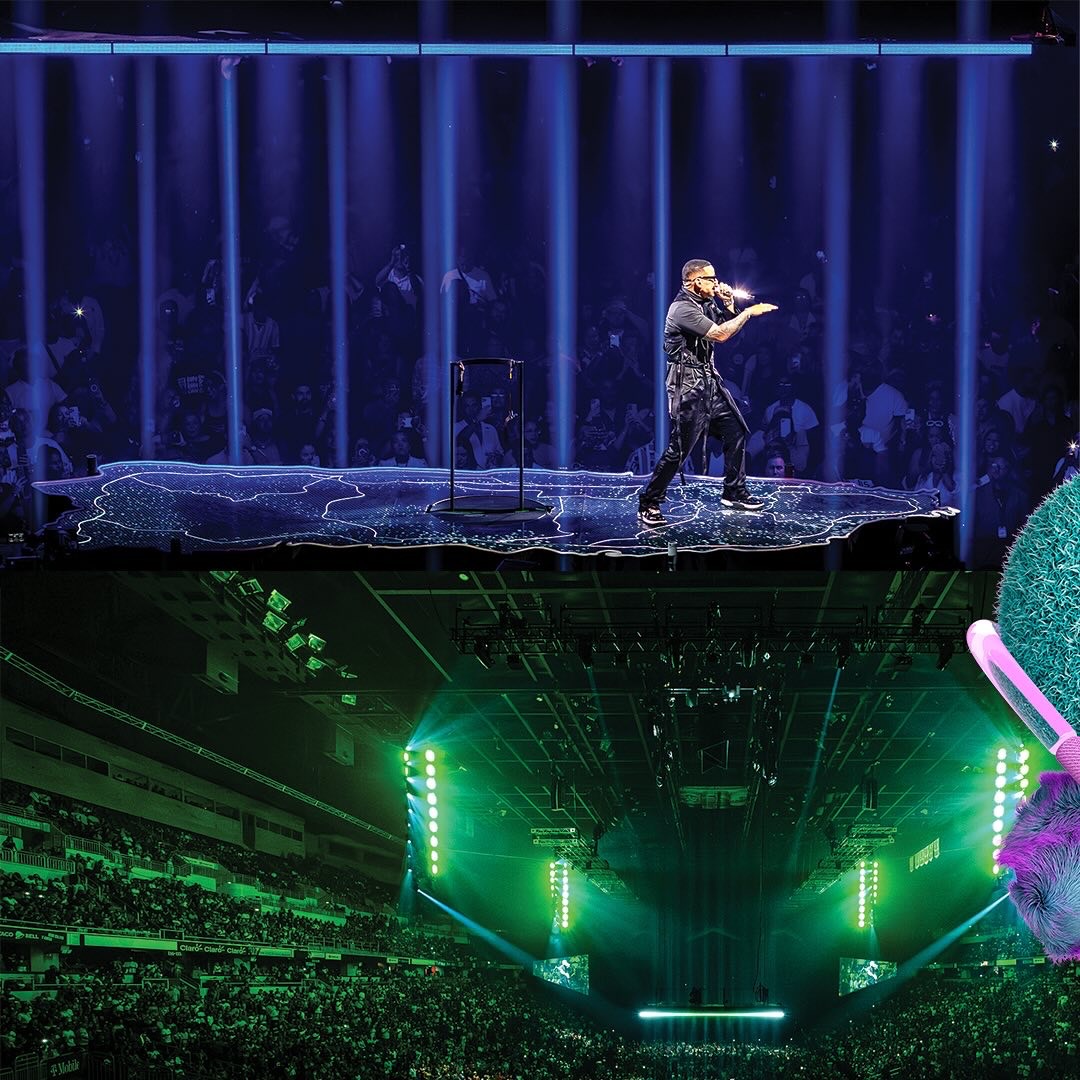
For Ahlstrand , the song “Jefe,” at the beginning of Act III stood out. “This was the first time that almost all of the elements came together,” he said. “The scale and size of the show is more than you can visually take in without constantly scanning the room but during this song we used a lot of negative space between the lighting and content to help establish the scale of our new setting. But we also held back plenty to allow us to keep building the experience throughout the remainder of the show.”
Dane Kick has a special place in his heart for the top of the show where Daddy Yankee performs on his lighting platform, and is floating above the audience moving back and forth. “It was such a killer way to start the show,” he said. “A great build up to Act Three, when he eventually took the stage for the first time and the whole set was revealed.”
Will Flavin remembers the teamwork of the show most all. “We had a great lighting crew on this one,” he said. “There was a tight turnaround between load-in, rehearsals, and the first show. We had roughly one thousand fixtures, none of which were on pre rig truss. None of the crew had a lack of things to do throughout the day, but were always checking in to make sure we had what we needed. “
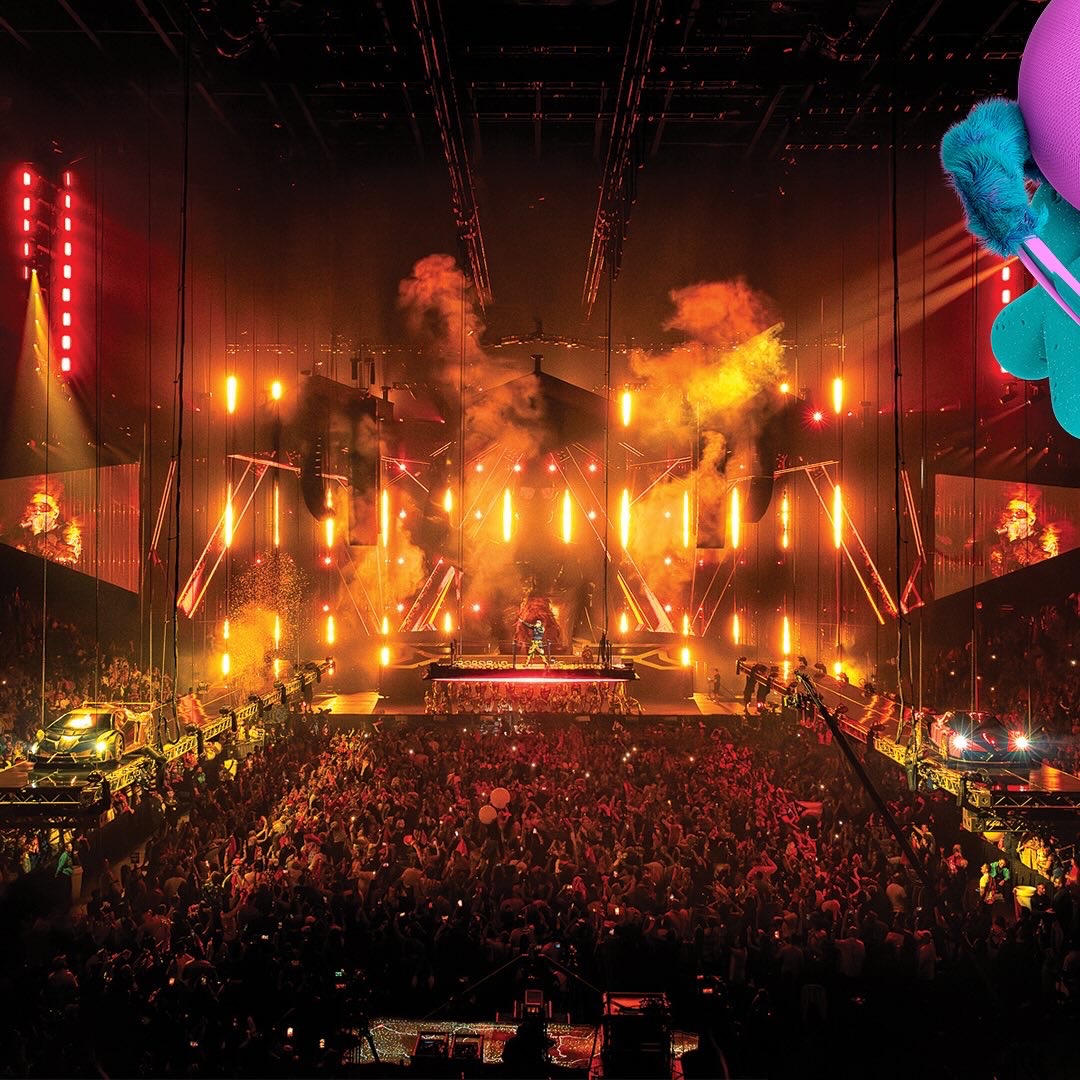
Pulling off such a massive show brought the team close together noted Flavin, who adds “we definitely made some new friends for life after this one.” In the process they also created some magical moments that will last a lifetime too.